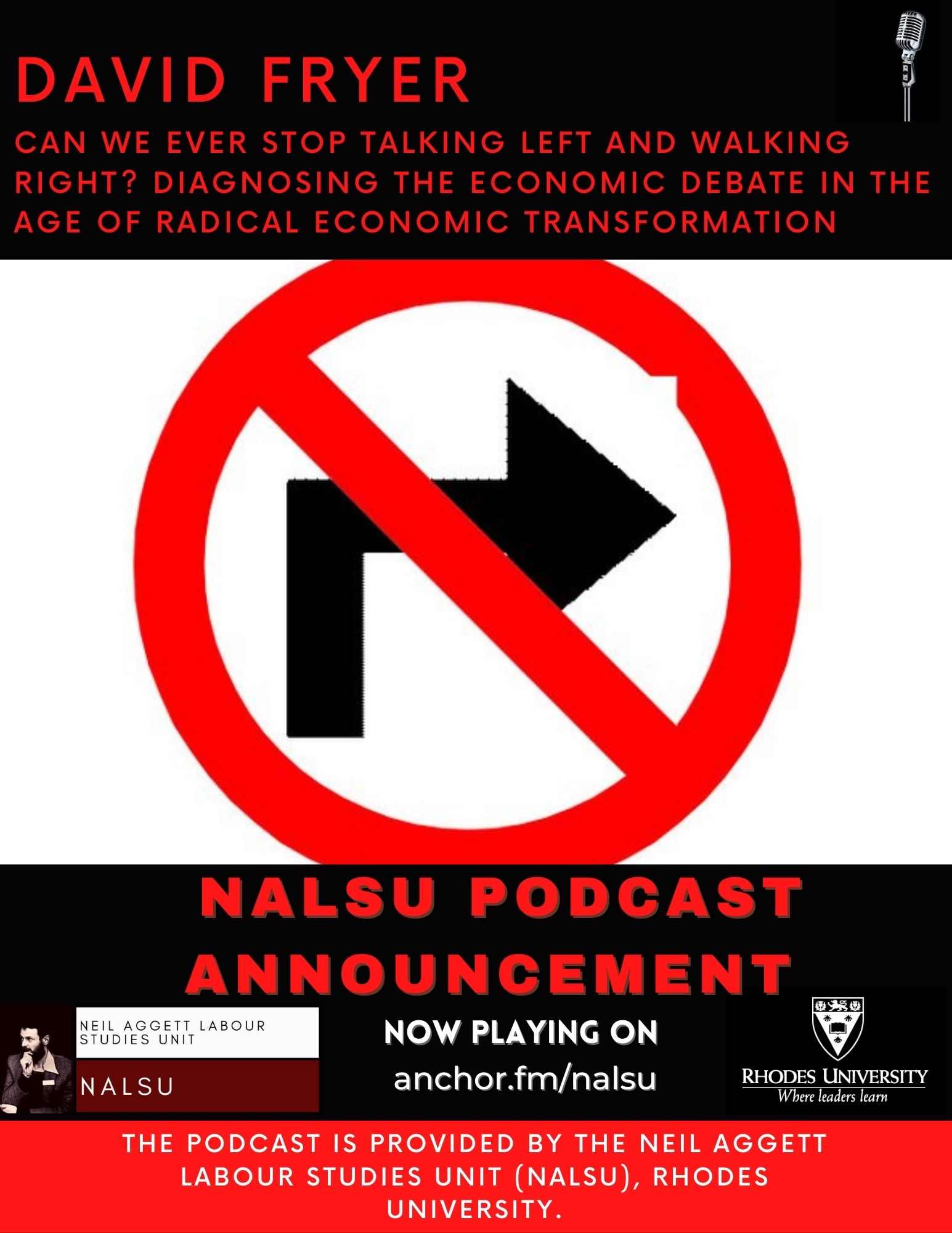
In this Labour Studies Podcast, David Fryer, Rhodes University, discusses "Can We Ever Stop Talking Left and Walking Right? Diagnosing the economic debate in the age of Radical Economic Transformation"
The podcast is provided by the Neil Aggett Labour Studies Unit (NALSU), Rhodes University, South Africa. Please follow the link for the podcast: https://anchor.fm/nalsu (You can also download the Anchor FM app for your phone at the Google Play Store).
THE PAPER: South Africa’s transition to democracy is a classic example of a conservative transition. Radical intentions to redistribute wealth and to alter the economic model were replaced by IMF and World Bank compliant policies. Not only this: pressures from below for a shift to a more radical dispensation have repeatedly been contained and defused. The piecemeal progressive reforms that characterise the post-apartheid period (including social grants, shifts in the funding of education, BEE) are by definition not radical: they have not changed but have often served to reinforce the core development model, which remains neo-liberal.
This paper argues that one of the main causes of this pattern stems from the poor quality of the economic debate. Describing and diagnosing the ills of neoliberalism is one thing. Imagining alternative economic strategies is another. Perhaps the most important lesson to learn from the transition to democracy is that even if politicians have the will and power to redress social and political ills, they will not implement policies they believe will fail. In a world where revolutionary rupture appears utopian, the Left is often much stronger on critique than policy. Where it does offer plausible policy advice it tends to be centrist and reformist more often than it is radical.” This paper argues that the left should embrace rather than be embarrassed by Keynesian/social democratic economics, and tries to show how such an economics would work.
THE SPEAKER: David Fryer a political economist at Rhodes University, where he teaches macroeconomics, microeconomics, and political economy and labour. He is part of the Neil Aggett Labour Studies Unit (NALSU), served on the steering committee of the Political Economic of Restructuring South Africa (PERSA) research programme. He is an editor of the Journal of Contemporary African Studies and has research linkages with the HSRC’s recently-formed BRICS Research Centre. His research interests include labour economics, global macroeconomics, development economics, and economic methodology.
This talk was originally given on 17th April 2018. The Labour Studies Podcasts are from our popular Labour Studies Seminar Series, launched in 2015.
We cover "labour studies" in the broadest sense: labour and left history, policy and political economy, unions and popular struggles. NALSU, based in the Eastern Cape, South Africa, is engaged in policy, research and workers' education. Built around a vibrant team from disciplines including Economics, History and Sociology, it has active partnerships and relations with a range of advocacy, labour and research organisations. It draws strength from its location in a province where the legacy of apartheid and the cheap labour system, and the contradictions of the post-apartheid state, are keenly felt. We are named in honour of Dr Neil Hudson Aggett, a union organiser and medical doctor who died in 1982 in an apartheid jail after enduring brutality and torture. https://www.ru.ac.za/nalsu/
